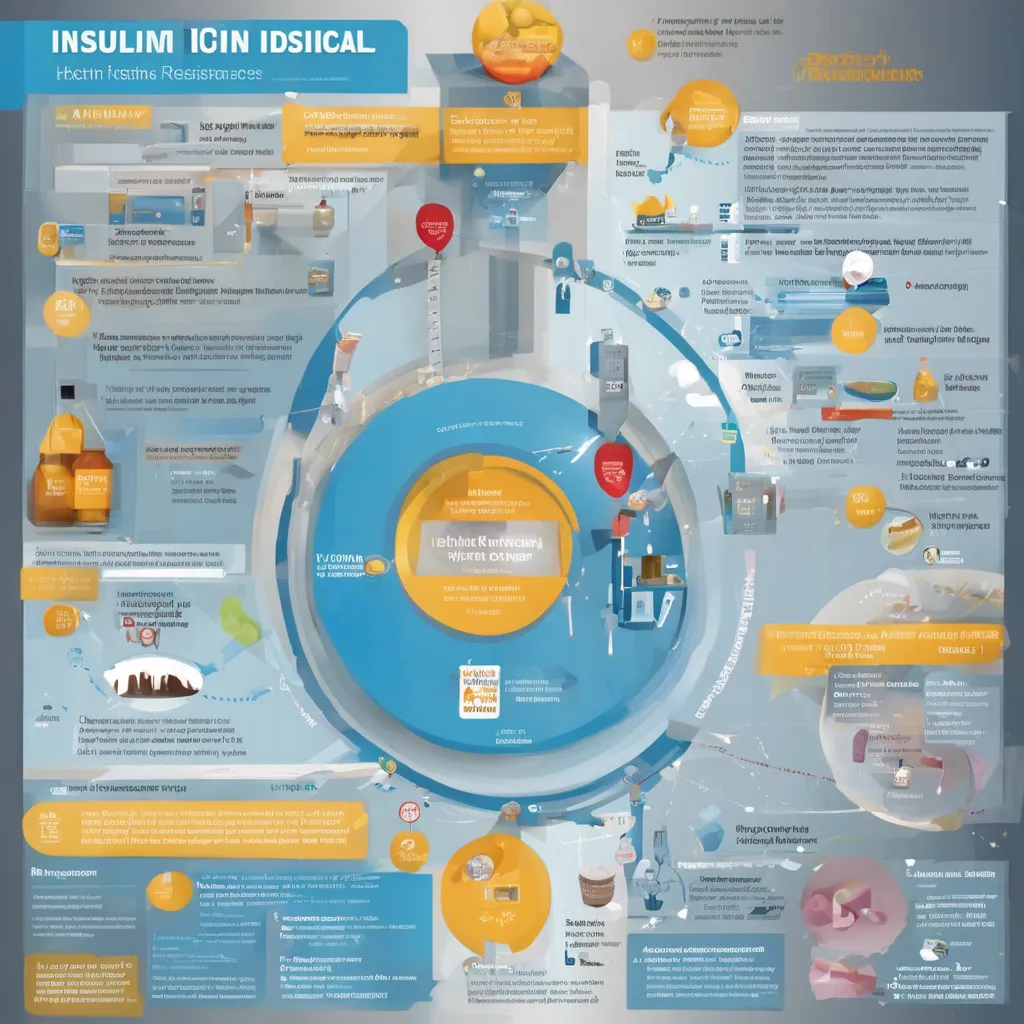The Connection Between Obesity and Insulin Resistance
Discover the surprising link between obesity and insulin resistance - a hidden danger lurking behind the rise in chronic health conditions.
Discover the surprising link between obesity and insulin resistance - a hidden danger lurking behind the rise in chronic health conditions.

Obesity and insulin resistance are two interconnected health concerns that have become increasingly prevalent in modern society. While obesity is often seen as a result of poor dietary choices and sedentary lifestyles, it is also closely linked to insulin resistance, a condition in which the body's cells do not respond properly to the hormone insulin. Understanding the complex relationship between obesity and insulin resistance is crucial for developing effective strategies to prevent and manage these conditions, ultimately promoting better overall health.
Insulin resistance is a condition where the body's cells become less responsive to the hormone insulin. Insulin is responsible for regulating blood sugar levels by allowing glucose to enter the cells. In insulin resistance, the cells no longer respond effectively to insulin, leading to elevated blood sugar levels. This can ultimately result in the development of type 2 diabetes. Insulin resistance is often caused by obesity and sedentary lifestyles. Fortunately, lifestyle changes such as maintaining a healthy weight, exercising regularly, and eating a balanced diet can help improve insulin sensitivity and manage blood sugar levels.
Excess body fat can have a significant impact on insulin production, leading to various health issues. Understanding the connection between obesity and increased insulin production is crucial in addressing the implications of excessive body fat.
A practical technique for improving insulin sensitivity through weight management is to create a calorie deficit by consuming a balanced diet and engaging in regular physical activity. This can lead to weight loss, which has been shown to improve insulin sensitivity in individuals with obesity and insulin resistance.
In conclusion, the link between obesity and insulin resistance is undeniable. Obesity contributes to an imbalance in hormone levels, leading to increased insulin resistance and the development of type 2 diabetes. Adipose tissue releases inflammatory cytokines that impair insulin signaling, exacerbating insulin resistance. Moreover, excess fat in vital organs like the liver and pancreas further disrupts insulin regulation. Recognizing and addressing the connection between obesity and insulin resistance is crucial in developing effective prevention and treatment strategies for both conditions. Public health initiatives focused on reducing obesity rates could have a significant impact on reducing the prevalence of insulin resistance and ultimately decreasing the burden of type 2 diabetes.
Insulin resistance occurs when the cells in your body become less responsive to the effects of insulin. As a result, your body produces more insulin to compensate for the reduced effectiveness, leading to high levels of insulin in the blood.
Insulin resistance can have serious health consequences. It increases the risk of developing type 2 diabetes, cardiovascular disease, and certain types of cancer. It is also associated with other conditions like polycystic ovary syndrome (PCOS), non-alcoholic fatty liver disease, and sleep apnea.
Obesity is a major risk factor for insulin resistance. Excess body fat, especially visceral fat (fat around the organs), releases inflammatory substances that interfere with insulin signaling. These substances impair the ability of insulin to regulate glucose levels in the bloodstream, leading to insulin resistance.
There are medications available to help manage insulin resistance. These include metformin, which improves insulin sensitivity and lowers glucose production in the liver, and thiazolidinediones (TZDs), which increase insulin sensitivity in peripheral tissues. However, medication should be used in combination with lifestyle changes for optimal results.
Yes, insulin resistance can be reversed through lifestyle changes. Losing weight, adopting a healthy diet low in processed sugars and refined carbohydrates, exercising regularly, and managing stress can improve insulin sensitivity and reduce the risk of developing type 2 diabetes.